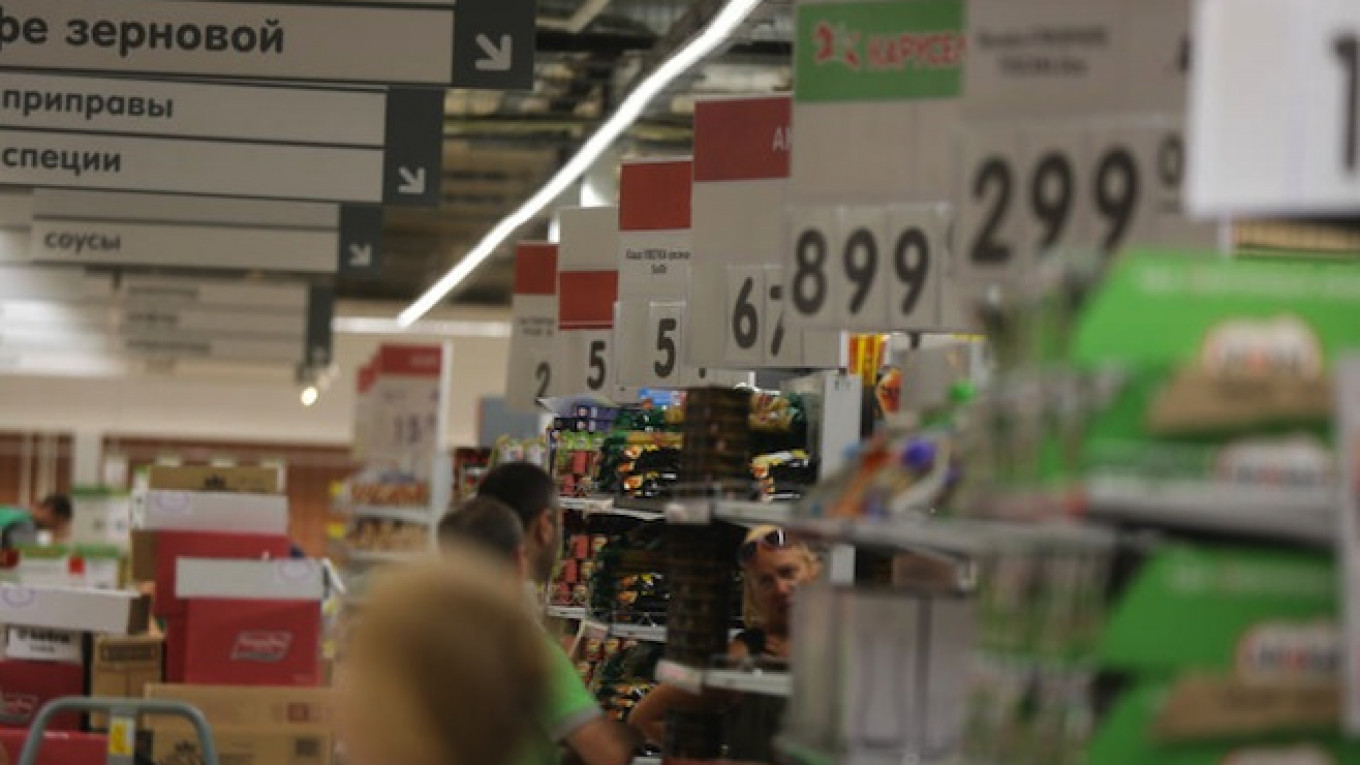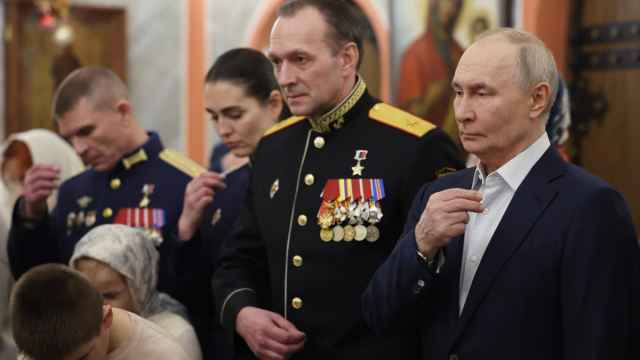Of all price increases in the last two months, Russians most keenly felt hikes in housing and utilities payments, state-sponsored pollster VTsIOM reported Thursday.
Increases in housing and utilities payments were noticed by 82 percent of the poll's respondents, and 47 percent of those polled said the rise was “significant.”
In second place among areas in which respondents said they had noticed price rises was meat: 79 percent of Russians said meat products had become more expensive.
Nearly three quarters of those polled noticed a rise in sugar and dairy product prices, at 73 and 72 percent, respectively.
Gasoline price increases were noticed by 67 percent of Russians, while public transport ticket prices were considered the most inflation-resistant.
The poll by VTsIOM was conducted in 46 regions among 1,600 participants and had a margin of error not exceeding 3.5 percent.
“It's important that price increases were noticed mostly by low-income groups of the population — the ones who cannot switch to cheaper food and goods [because they already buy the cheapest available],” said VTsIOM expert Yulia Baskakova in a report accompanying the poll results.
And those groups account for a large proportion of the population: One-third of the survey's participants said they only spent money on food, and were barely making ends meet, said Baskakova.
Russia inflation dropped slightly in September to 15.7 percent year-on-year.
Deputy Energy Minister Vyacheslav Kravchenko told Ekho Moskvy radio Tuesday that Russian people owed 40 billion rubles ($643 million) for electricity.
When industrial and agricultural users and state-funded organizations are added into the equation, the overall electricity debt totals 200 billion rubles ($3.1 billion). Unpaid bills for gas, water, heating, housing and utilities are now worth nearly 900 billion rubles ($13 billion), said the official.
A Message from The Moscow Times:
Dear readers,
We are facing unprecedented challenges. Russia's Prosecutor General's Office has designated The Moscow Times as an "undesirable" organization, criminalizing our work and putting our staff at risk of prosecution. This follows our earlier unjust labeling as a "foreign agent."
These actions are direct attempts to silence independent journalism in Russia. The authorities claim our work "discredits the decisions of the Russian leadership." We see things differently: we strive to provide accurate, unbiased reporting on Russia.
We, the journalists of The Moscow Times, refuse to be silenced. But to continue our work, we need your help.
Your support, no matter how small, makes a world of difference. If you can, please support us monthly starting from just $2. It's quick to set up, and every contribution makes a significant impact.
By supporting The Moscow Times, you're defending open, independent journalism in the face of repression. Thank you for standing with us.
Remind me later.






